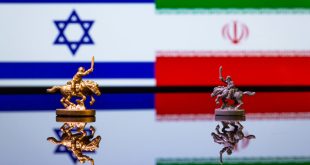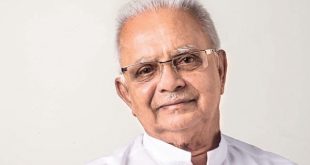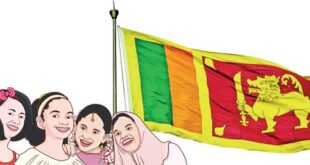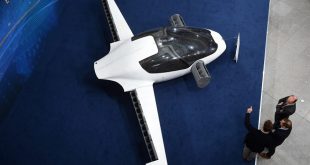On June 30, US combat troops withdrew from Iraqi cities and confined themselves to bases. Prime Minister Nuri al-Maliki’s government declared it a major victory for the Iraqi people and his government, though the US troops are still seen moving around in the cities from which they withdrew in violation of the troop withdrawal agreement.
Amidst a lull in combat operations, bomb attacks on Iraqi political and civilian targets also waned. The wind of optimism began to blow across Iraq, which is facing yet another election in January. The al-Maliki government claimed credit for the security situation and has built its election campaign on this relative success.
But on Monday, the Iraqis’ hopes for a secure and peaceful country were shattered when a series of bomb blasts killed 72 civilians and wounded more than 350. The victims were largely Shiites, who constitute 55 percent of the Iraqi population. It raises questions whether someone or some group is trying to reignite sectarian clashes. Obviously, the people were angry. They scoffed at the government’s claim that it was capable of providing security to the Iraqi people.
As expected, ‘al-Qaeda in the Islamic State of Iraq’ was blamed for the blasts which continued on Tuesday and Wednesday. But can one rule out the involvement of other actors, especially those foreign intelligence groups which operate quite freely in Iraq?
Certainly the Iraqis — whether they are Sunnis, Shiites, Kurds or Turkmen — long for a democratic, secure and peaceful country. They hope to lead a normal life and want to give their children a good education. They continue to entertain hope after hope that the infrastructure which the Americans destroyed will be fully operational soon and the entire country will have electricity, gas and pipe-borne water.

Incidentally, the Iraqis and the US taxpayers are paying for the reconstruction of these infrastructure facilities which the military force of US President George W. Bush destroyed. Many of the contracts, of course, have gone to US companies run by neocon supporters who were the ardent advocates of the illegal invasion of Iraq.
To understand the Iraqi situation better, the question one needs to ask is: “who stands to benefit by destabilizing Iraq?”
Probably, the Americans have an agenda, although President Barack Obama has pledged to stick to the troop withdrawal timetable which he announced in February this year. Obama said he planned to withdraw most American troops from Iraq by August 2010, but some 35,000 US troops would remain there to advise Iraqi forces until the end of 2011.
But the Status of Forces Agreement (SOFA) which the US and Iraq signed last year, a day before the United Nations mandate that legitimized the US military presence in Iraq expired on December 31, 2008, has many clauses under which the American troops could stay in Iraq even after 2011. The main justification for such a continued US presence is the threats to Iraq from internal and outside sources. As to who is to interpret what constitutes a threat to Iraq is not mentioned in the agreement. So as long as Iraq remains destabilized and as long as al-Qaeda is kept alive, the US troops’ presence beyond the 2011 deadline is a strong possibility.
Apart from this, there is much skulduggery regarding SOFA. For instance, when the agreement was signed, the Iraqi government pledged to hold a referendum in July this year. But when July dawned and passed, the Iraqi government said the referendum would be held in January next year, coinciding with the parliamentary elections. It is unknown how the Iraqi people will vote at the referendum on SOFA, if and when it is held. But one thing is clear. A negative vote for SOFA will add pressure on the al-Maliki government or the next Iraqi government to revise the agreement. Otherwise, the US troops would not be able to stay in Iraq beyond the summer of 2010. Thus many believe that the referendum will be held only if the Americans and their puppet government in Baghdad are certain that the Iraqis would vote in favour of SOFA. Reports say more and more Iraqis are impatient to see a complete US troop withdrawal. A senior US military officer in Baghdad recently advised the US government in a secret memo that it was time to pack bags and go home. Col. Timothy R. Reese, who advises the Iraqi military’s Baghdad command, in a strong but blunt memo said it was time “for the U.S. to declare victory and go home.
“As the old saying goes, ‘Guests, like fish, begin to smell after three days. Since the signing of the Security Agreement, we are guests in Iraq, and after six years in Iraq, we now smell bad to the Iraqi nose,” Col. Reese said.
It was expected that this piece of advice, which came from a military officer working closely with the Iraqi soldiers, would be taken seriously by the Obama administration. But the absence of any indication that this advice has been taken seriously underscores the existence of hawks-in-doves garb even in the Obama administration.
Many analysts say it is unlikely that the last US soldier would leave Iraq before Washington achieved its security and economic objectives.
From a US strategic point of view, Iraq is an important base for Washington for two main reasons: To check Iran’s regional ambitions and to ensure that Iraq’s oil is exploited to the advantage of the US economy.
It is no secret that the Bush administration invaded Iraq to take control of its oil resources. Already, several US and European firms have entered into contracts with the autonomous Kurdish government in northern Iraq to export oil. Neither the foreign oil firms nor the Kurdish autonomous government has paid much heed to the Iraqi government’s declaration that the agreements are illegal because they were signed in terms of a regional law and not in terms of national law. But this does not mean the al-Maliki government is opposed to oil deals with foreign firms. It is also doing exactly the same, causing concern among the Iraqis, especially the Sunnis and the supporters of radical Shiite cleric Muqtada al-Sadr.
On June 30, the government auctioned some of Iraq’s oil fields and the winner was a consortium comprising British Petroleum and the Chinese National Petroleum Corporation. A second set of oil fields are up for grabs in another auction in November. Besides, there are also moves to set up a company to handle Iraq’s oil. This company, to be named Iraq’s National Oil Company will, according to industry sources, have total freedom from government interference.
A bill that seeks the setting up of this company is being drafted by a parliamentary committee and is -expected to be presented in parliament after the Ramazan vacation. The company is a private-public partnership venture, the government says insisting that a move in this direction is necessary because Iraq on its own is incapable of resurrecting or modernizing its oil industry infrastructure which was damaged in the nine-year Iran-Iraq war, the US attacks during the Kuwait war and the 2003 US invasion.
But critics say the setting up of the company is a big step towards completely privatizing or ‘foreignising’ Iraq’s oil which the Iraqi people consider as their national wealth. Iraq has proven oil reserves of around 112 billion barrels and another 150 billion barrels of probable reserves. Taken together, these two figures will make Iraq the biggest global oil producer. Iraq is thus seen as the grandest prize for ‘Big Oil’. Given the shenanigans, any US withdrawal from Iraq would depend not on SOFA, the Obama timetable or the Iraqi people’s verdict at a referendum, but on the decision of Big Oil.
There won’t be a meaningful US troop withdrawal until such time when Big Oil feels it can continue to exploit or plunder Iraq’s wealth without the presence of US troops there. Iraq’s problems, it appears, are from over.
 Sri lanka Muslims Web Portal Diversity and Inclusiveness
Sri lanka Muslims Web Portal Diversity and Inclusiveness



